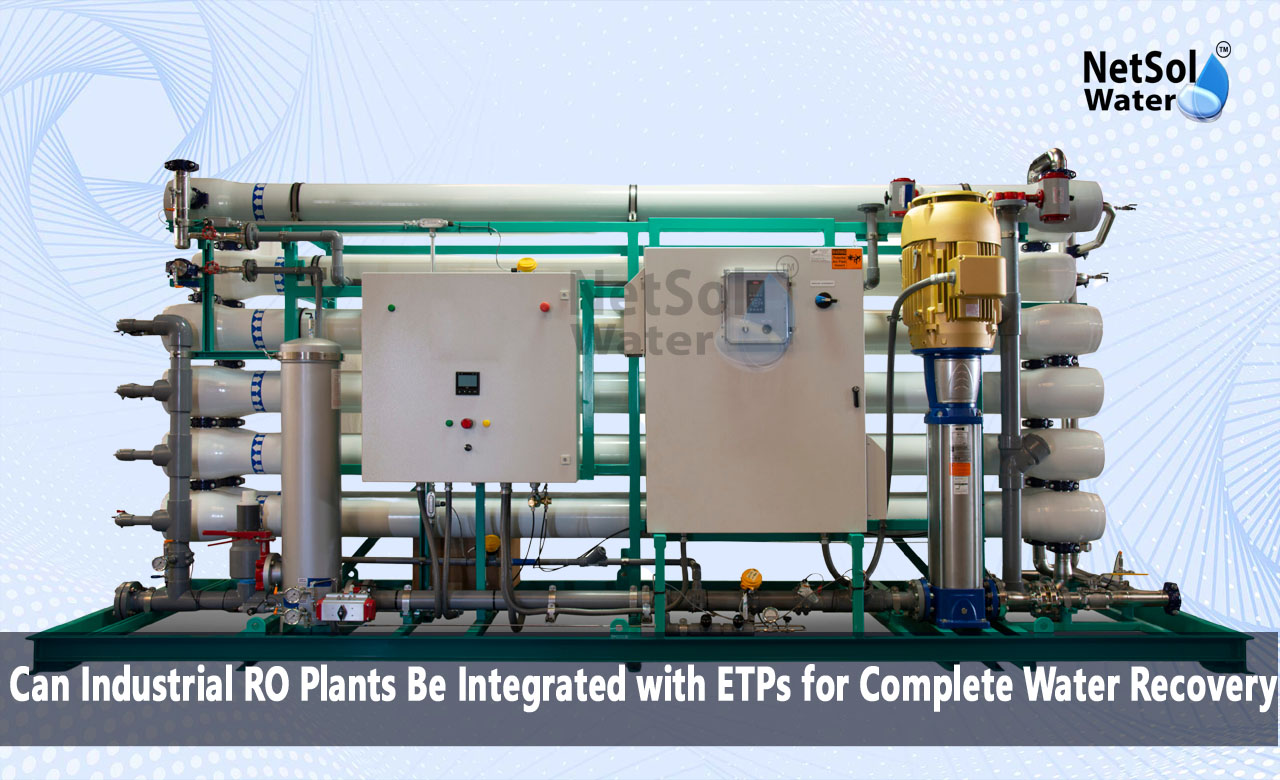Can Industrial RO Plant Be Integrated with ETPs for Complete Water Recovery?
Water scarcity poses significant challenges to industries in many regions. Many industries face high costs for fresh water and for treating wastewater before release. Industrial RO plants Integrated with ETPs provide a path to use water again and again within production cycles. This approach mixes proven membrane filtration and conventional effluent treatment in one flow. It can cut down on waste output and lower operational expenses. It can also help companies meet strict discharge rules and protect local ecosystems. Here we examine how these two technologies can work as one system.
Industrial RO Plants
Effective removal of dissolved solids makes industrial RO plants a main tool for water reuse. Let us have a look on some key aspects of these systems and how they function.
System Components
RO assemblies include a feed pump, a membrane stack and a cleaning unit. Feed water moves under pressure into the membranes. The membranes hold back salts and other particles. The purified stream exits to reuse. The reject stream carries the concentrated waste to further treatment or disposal.
Operational Principles
The membranes use pressure to push water through tiny pores. They stop minerals and particles that cause scale or corrosion. System performance depends on feed water quality and pressure level. Regular cleaning keeps membranes open and efficient. Operators run periodic checks to watch for fouling and loss of flux.
Effluent Treatment Plants
Managing wastewater flow and quality remains a core aim of every ETP. Let us have a look on some main functions that each ETP must perform to protect people and environment.
Core Processes
Effluent treatment uses stages of sedimentation, aeration and filtration. Tanks let heavy solids settle at the bottom. Aeration promotes breakdown of organic matter. Filters then trap finer solids before discharge. Each part must work in balance to make safe water.
Regulatory Compliance
Factories face rules on discharge limits for organics and heavy metals. Plants test pH and pollutant counts at each stage. They then adjust process time and add treatment agents when tests show overshoot. Report data must reach authorities on schedule to keep permits active.
Integration Methodologies
Combining both units can make a closed loop that cuts down on fresh water use. Let us have a look on some proven integration steps and how they fit together.
Process Flow Design
Engineers map the flow from ETP outlet into RO feed. They add buffers to even out concentrations and flow rates. They plan a bypass route for peak loads so the RO unit stays safe. This design makes sure each unit works within design limits.
Control Systems
Automation ties sensor data from both units into a central control panel. The panel opens valves and adjusts pump speed to match demand. It can trigger cleaning cycles in the RO section when quality dips. It can switch back to ETP discharge if any alarm trips.
Benefits of Complete Water Recovery
Industries can gain in many ways when they run these systems as one loop. Let us have a look on some positive outcomes from total recovery of water.
Resource Conservation
By sending ETP output to the RO unit, companies can cut fresh water intake by half or more. They then use treated water for boilers cooling and cleaning. This step shields local streams and aquifers from overuse.
Cost Efficiency
Lower water purchase and disposal fees free up budget for other upgrades. Fewer chemicals go into both processes. Maintenance teams face lighter work loads when backflush and cleaning events drop. Overall running expense falls and asset life grows.
Conclusion
Achieving full water recovery offers industry a path to save resources and to meet tough waste rules while cutting cost. Industrial RO systems integrated with ETPsshows one way to build a steady reuse cycle. Learn how your plant can adopt this smart design and gain more from every drop. Contact our experts now to discuss a tailored plan or to request a consultation on your next project.
Contact Netsol Water at:
Phone: +91-9650608473, Email: enquiry@netsolwater.com



